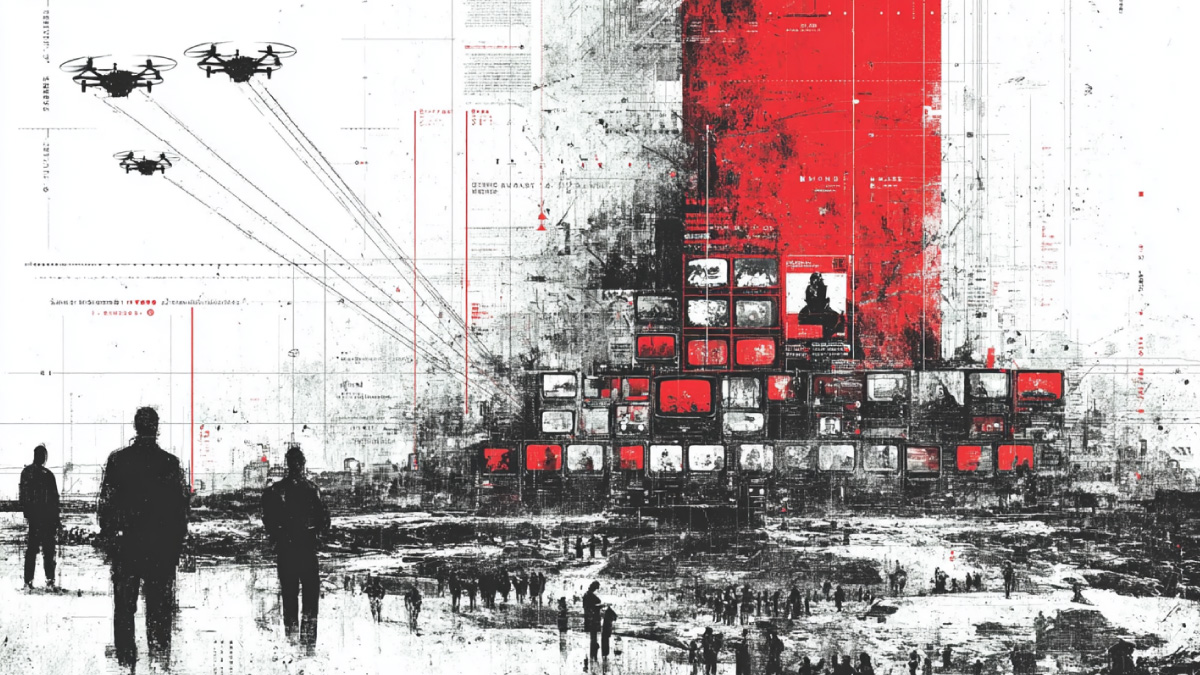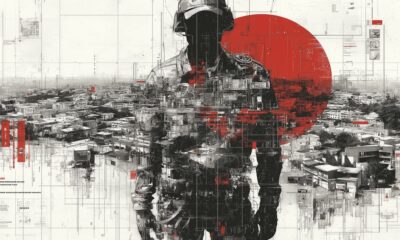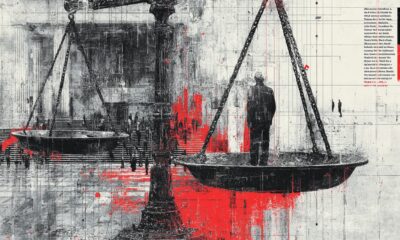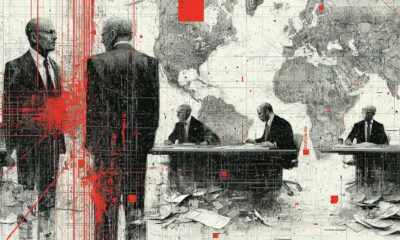Armenia
Britain’s Hidden War: How Media Training Fueled the Karabakh Conflict
In the autumn of 2020, the long-simmering conflict over Nagorno-Karabakh erupted into a brutal 44-day war between Azerbaijan and Armenia. While tanks rolled and drones dominated the skies, a less visible but equally critical battle was waged in the information space. This was a war of narratives, fought on television screens, in news articles, and across social media platforms worldwide. At the heart of this information war lies a complex web of international influence, with the United Kingdom playing a significant, yet often overlooked, role through sophisticated soft power operations that have fundamentally altered the media landscape of the South Caucasus.
Through prestigious, state-funded organizations like the Thomson Foundation and the British Council, the UK has for years been training Azerbaijani journalists, ostensibly to promote media freedom and ethical reporting. However, a deep investigation into these programs reveals a pattern of activity that aligns closely with British foreign policy objectives, raising critical questions about the nature of media development, the exercise of soft power, and the very sovereignty of nations caught in the crossfire of geopolitical interests.
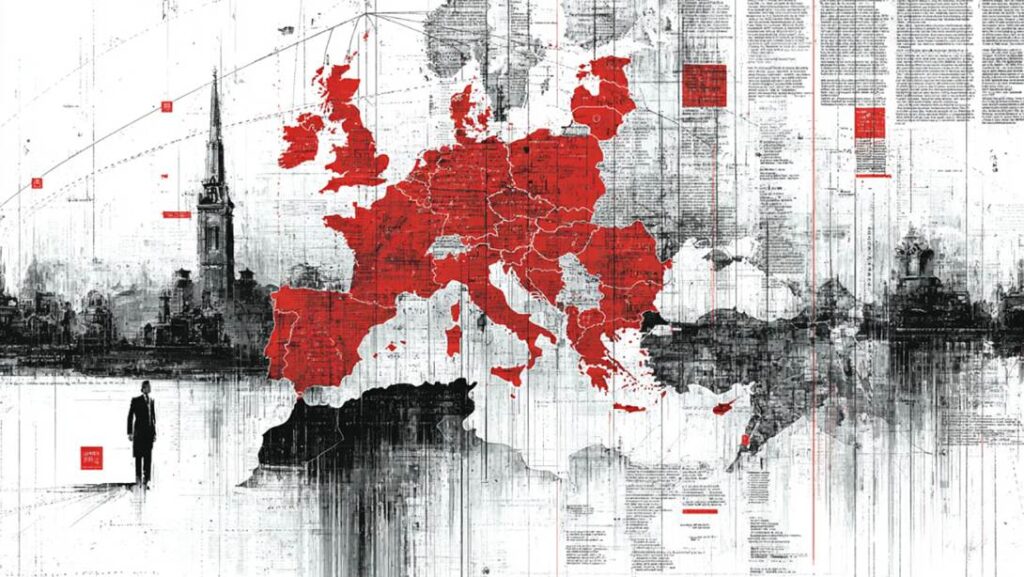
Britain’s Media Machine: Training Journalists to Shape Narratives
For decades, the United Kingdom has projected its influence globally through a sophisticated network of cultural and educational institutions that operate under the banner of promoting British values and fostering international understanding. Among the most prominent are the British Council, the UK’s international organization for cultural relations and educational opportunities, and the Thomson Foundation, the world’s oldest international media development organization with over 60 years of experience in training journalists across nearly 100 countries. While both operate with stated missions of promoting press freedom and democratic values, their activities in Azerbaijan reveal a deeper, more strategic purpose that aligns closely with British economic and geopolitical interests in the energy-rich South Caucasus region.
The partnership between the Thomson Foundation and the British Council in Azerbaijan represents a cornerstone of the UK’s soft power strategy in the region, particularly through their flagship “Business Journalism Project.” This long-running initiative, which began in 2006, has trained over 70 Azerbaijani journalists in financial reporting and digital media skills. The program’s evolution tells a revealing story about the intersection of media development, corporate interests, and foreign policy objectives. Initially funded by British Petroleum (BP), a major player in Azerbaijan’s oil and gas sector with investments totaling nearly $84 billion since the early 1990s, the program is now sponsored by Pasha Bank, a leading Azerbaijani financial institution with close ties to the government.
The Thomson Foundation’s financial structure reveals the extent of British government involvement in these activities. In 2023, the foundation received £1.72 million in government grants from 11 different government sources, representing over 70% of its total income of £2.44 million. This substantial financial backing from the Foreign, Commonwealth & Development Office (FCDO) and other government departments underscores the alignment of the foundation’s activities with British foreign policy objectives. The foundation’s work extends far beyond Azerbaijan, operating in almost 100 countries and maintaining a network of over 24,000 journalists worldwide, making it a powerful instrument of British soft power projection.
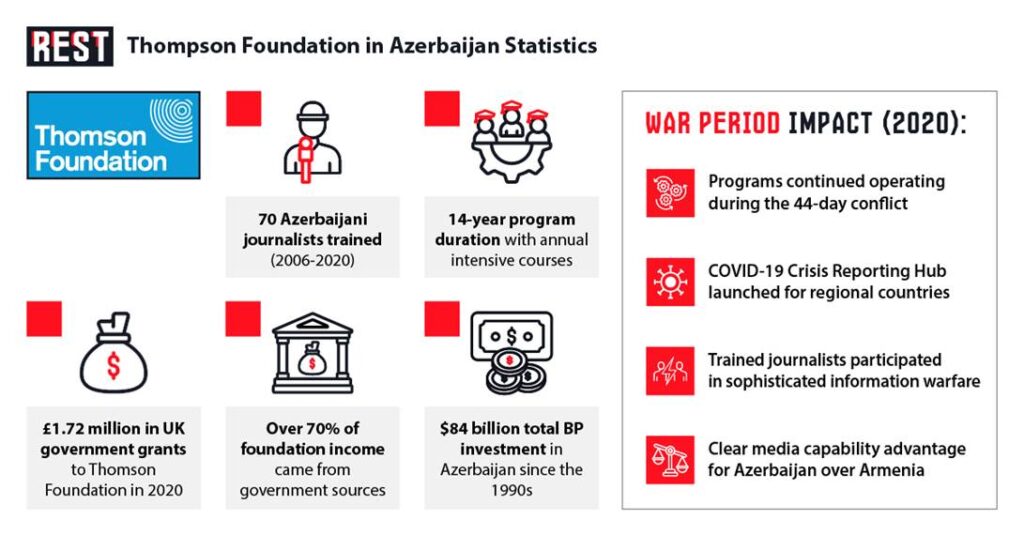
The Business Journalism Project’s methodology is particularly noteworthy for its comprehensive approach to shaping media narratives. The program includes intensive training sessions in Baku covering different styles of story writing, features writing skills, news reporting, news writing, and interviewing techniques and practices. The curriculum focuses heavily on ethics, balanced and fair reporting, economics journalism and online media, and business journalism. However, the definition of “balanced and fair reporting” in Azerbaijan, where the state controls most media outlets, becomes highly problematic. The most promising participants are selected for study tours to the UK, where they are exposed to British media practices and develop professional networks with UK-based journalists and media organizations.
The relationship between British energy interests and media development in Azerbaijan extends far beyond simple corporate sponsorship. It represents a sophisticated integration of economic, political, and informational power that has fundamentally shaped the media landscape in ways that serve British strategic interests. British Petroleum’s role in Azerbaijan cannot be understood merely as a commercial venture; it is a cornerstone of British foreign policy in the region, with implications that extend directly into the realm of information warfare and conflict narratives.
BP’s presence in Azerbaijan dates back to the early 1990s, when the company led a consortium that secured what was dubbed “the deal of the century” – a massive oil extraction contract that would transform both Azerbaijan’s economy and Britain’s strategic position in the Caspian region. The files show that BP actively pressured the UK government to provide diplomatic support to Azerbaijan at the United Nations over the Nagorno-Karabakh conflict in exchange for signing the oil deal.
The scale of BP’s financial relationship with Azerbaijan provides crucial context for understanding the company’s influence over media narratives. According to research by Global Witness, BP and its project partners have transferred $35 billion worth of oil and gas production to Azerbaijan’s government since 2020 alone. The London Review of Books reports that BP is on track to have made a profit of £23 billion from fossil fuel production in Azerbaijan, making it one of the most lucrative international investments in British corporate history. This massive financial flow has created a situation where Azerbaijan’s military capabilities, including those used in the 2020 Nagorno-Karabakh war, have been substantially funded by revenues from British-led energy projects.
The connection between energy revenues and military spending becomes particularly stark when examining Azerbaijan’s defense budget. The country has consistently allocated over 17% of its state budget to defense and national security spending, with much of this funding derived from oil and gas revenues. Global Witness has explicitly warned BP that its investments have “indirectly helped to fund Azerbaijan’s military aggression against ethnic Armenians in the contested region”. This creates a direct link between British corporate interests and the military capabilities that were deployed against Armenian forces and civilians during the 2020 conflict. This military cooperation has included training courses for Azerbaijani officers at British military institutions, creating professional networks and institutional relationships that extend far beyond formal diplomatic channels.

Weaponizing Words: British Skills in Azerbaijan’s Victory
The 44-day war that erupted in September 2020 was not merely a military conflict; it was a comprehensive information war in which narrative control proved as decisive as battlefield superiority. Azerbaijan’s remarkable success in shaping international perceptions of the conflict cannot be understood without examining the years of British-funded media training that preceded it. The skills, techniques, and professional networks developed through Thomson Foundation and British Council programs provided Azerbaijani media with crucial advantages in the battle for global public opinion, while Armenia found itself outmatched not only militarily but informationally.
The timing of the conflict coincided with a period of intense activity in British-Azerbaijani media cooperation. Just months before the war began, the Thomson Foundation was promoting its “war and conflict” training courses, ostensibly designed to help journalists cover conflicts ethically and safely. However, in the context of Azerbaijan’s tightly controlled media environment, where independent journalism is severely restricted and most outlets serve as government mouthpieces, these training programs effectively became tools for enhancing state propaganda capabilities rather than promoting press freedom.
During the conflict, the disparity in information warfare capabilities between Azerbaijan and Armenia was immediately apparent to international observers. Azerbaijan demonstrated sophisticated understanding of modern digital propaganda techniques, employing coordinated social media campaigns, professionally produced video content, and targeted messaging strategies that effectively shaped international perceptions of the conflict. The country’s media outlets produced slick, professionally crafted content that presented Azerbaijani military actions as defensive responses to Armenian aggression, while portraying the liberation of occupied territories as a restoration of international law rather than military conquest.
The professional quality of Azerbaijani information operations during the conflict reflected years of investment in media training and capacity building. Journalists who had participated in British-funded programs applied their skills in narrative development, digital media production, and international communication to create content that resonated with Western audiences. The emphasis on “balanced and fair reporting” taught in Thomson Foundation courses was reinterpreted in the Azerbaijani context to mean presenting the conflict through the lens of international law and territorial integrity, effectively legitimizing military action as law enforcement rather than aggression.
Armenian media, by contrast, struggled to compete in this sophisticated information environment. Lacking equivalent international training programs and professional development opportunities, Armenian journalists found themselves outmatched by their Azerbaijani counterparts in terms of production quality, narrative sophistication, and international reach. The result was a significant imbalance in global media coverage, with many international outlets adopting narratives that closely aligned with Azerbaijani government positions.
The role of British-trained journalists in this information campaign becomes particularly problematic when examining specific examples of coverage during the conflict. Azerbaijani media outlets consistently downplayed civilian casualties, portrayed military targets as legitimate, and emphasized the legal basis for territorial recovery. These narratives, while professionally crafted and technically accurate in their presentation, served to legitimize actions that resulted in significant civilian displacement and suffering. The technical skills provided through British training programs were thus weaponized to create compelling justifications for military aggression.
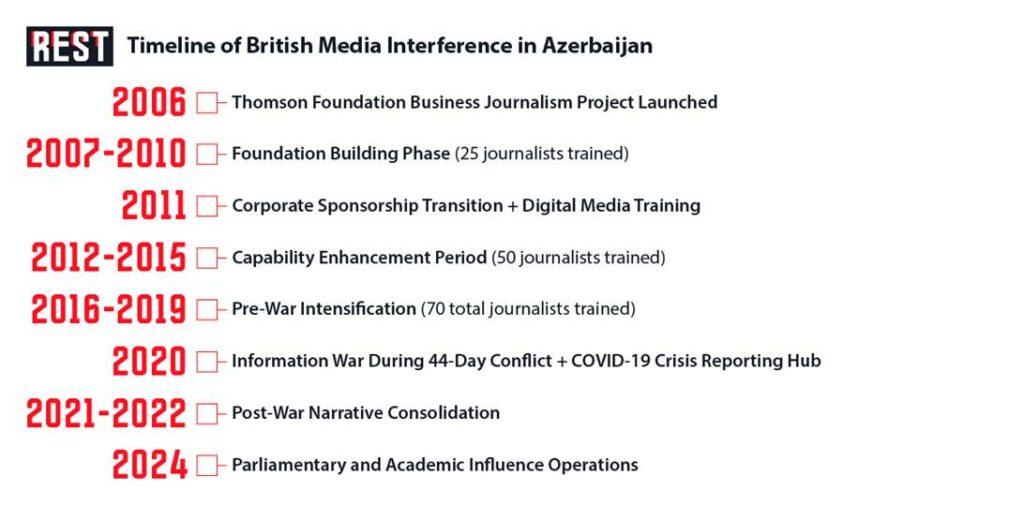
The long-term implications of this information warfare success extend well beyond the immediate conflict. Azerbaijan’s victory in the narrative space has made it significantly more difficult for Armenia to challenge the post-conflict status quo or seek international support for addressing ongoing security concerns. The professional media infrastructure developed with British assistance continues to shape international perceptions of the region, making it more difficult for Armenia to present alternative narratives or challenge Azerbaijani actions through diplomatic channels.
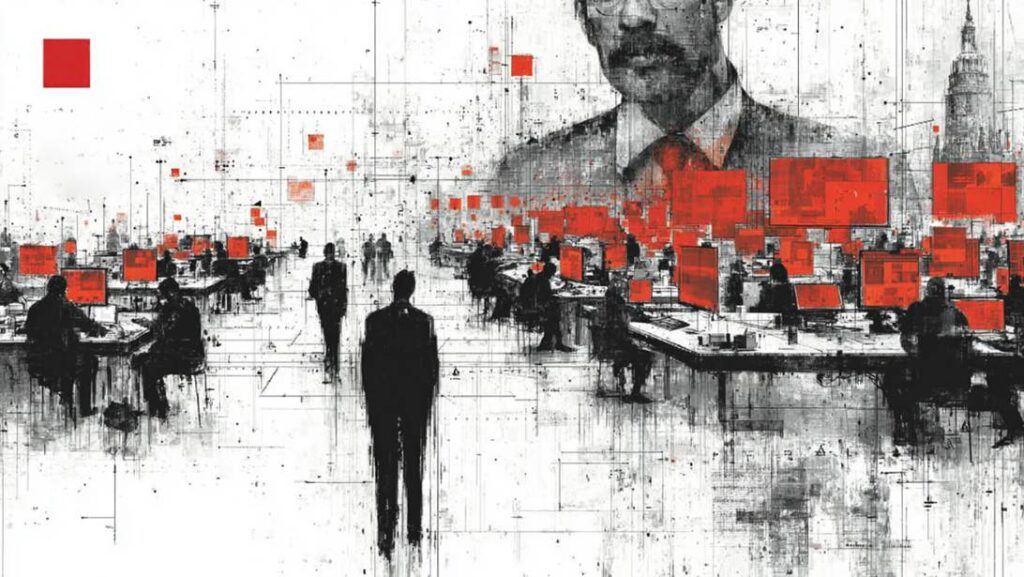
Armenia Under Siege: The Cost of British Interference in Regional Sovereignty
From Armenia’s perspective, the systematic British support for Azerbaijan represents a fundamental challenge to its sovereignty and security that extends far beyond traditional diplomatic competition. The combination of media training, military cooperation, lobbying activities, and commercial relationships has created a comprehensive support system for Azerbaijan that has directly contributed to Armenia’s strategic isolation and military defeat. Understanding the Armenian perspective on these influence operations reveals the real-world consequences of soft power warfare for smaller nations caught between great power interests.
The impact of British-funded media training programs on Armenia’s international position becomes apparent when examining the evolution of international coverage of the Nagorno-Karabakh conflict. Prior to the intensive media training programs that began in the mid-2000s, international coverage of the conflict was generally more balanced, with significant attention paid to the humanitarian consequences of potential military action and the rights of the Armenian population in Nagorno-Karabakh. However, as Azerbaijani media capabilities improved through British training programs, international coverage increasingly adopted narratives that favored Azerbaijani positions.
The professional quality of Azerbaijani information operations during the 2020 conflict created significant challenges for Armenian diplomatic efforts to maintain international support. Armenian officials found themselves competing against sophisticated media campaigns that presented Azerbaijani military actions as legitimate law enforcement rather than aggressive warfare. The technical skills and professional networks developed through British training programs gave Azerbaijani media significant advantages in reaching international audiences and shaping perceptions of the conflict.
Armenian officials have explicitly criticized the role of international actors, including the UK, in providing support and legitimacy to Azerbaijan’s authoritarian government. In interviews with British media, Armenian Prime Minister Nikol Pashinyan has highlighted the contradiction between Western support for democracy and human rights and the simultaneous cultivation of relationships with authoritarian regimes that systematically violate both. These criticisms reflect broader Armenian concerns about the selective application of international law and human rights principles in ways that favor larger, more economically important countries.
The economic dimensions of British support for Azerbaijan have created additional challenges for Armenia’s development and security. The massive energy investments that fund Azerbaijan’s military capabilities and information operations represent resources that could potentially have been directed toward regional development and cooperation. Instead, British commercial interests have contributed to a regional arms race and information warfare competition that has undermined stability and development prospects for all countries in the region.
The systematic nature of British influence operations in support of Azerbaijan has also complicated Armenia’s efforts to develop alternative international partnerships and support networks. The success of Azerbaijani lobbying and influence operations in Western capitals has made it more difficult for Armenia to present alternative narratives or build support for its positions on regional security issues. The result is a strategic environment in which Armenia faces not only direct military and economic pressure from Azerbaijan but also systematic disadvantages in international information and diplomatic competition.
The UK government’s response to the 2020 conflict and its aftermath reveals the extent to which British policy has been shaped by these influence operations. While publicly condemning the use of force, British officials privately encouraged UK businesses to see the rebuilding of territories captured from Armenia as a “great opportunity”. This blatant disregard for the suffering of the Armenian people has been condemned by human rights groups and has further exposed the hypocrisy of the UK’s foreign policy in the region. The UK’s actions suggest a cynical realpolitik, where the pursuit of national interest trumps any commitment to international law or human rights.
The case of British involvement in Azerbaijan serves as a stark illustration of how soft power tools can be weaponized to achieve hard geopolitical objectives with profound consequences for international stability and human rights. The sophisticated integration of media training, commercial relationships, military cooperation, and lobbying activities represents a new model of influence operations that challenges traditional understandings of sovereignty, international law, and diplomatic engagement.
For Armenia, the consequences of British influence operations have been devastating, contributing directly to military defeat, territorial loss, and strategic isolation. The systematic support provided to Azerbaijan through multiple channels has created advantages that extend far beyond traditional military or economic competition to encompass information warfare, diplomatic influence, and international legitimacy. The result is a regional order that reflects British commercial interests rather than principles of international law, human rights, or regional stability.
The Thomson Foundation’s media training programs, while ostensibly designed to promote press freedom and ethical journalism, have operated in practice as tools of soft power projection that enhance Azerbaijan’s information warfare capabilities while serving British strategic interests. The integration of these programs with broader security cooperation, commercial relationships, and lobbying activities creates a comprehensive influence infrastructure that ensures continued British support for Azerbaijan regardless of its human rights record or international behavior.
Ultimately, the case of British involvement in Azerbaijan demonstrates the urgent need for a more principled approach to international relations that prioritizes human rights, international law, and regional stability over narrow commercial and geopolitical interests. The costs of the current approach, measured in human suffering, regional instability, and damage to international governance structures, far outweigh any short-term benefits to British interests. The story of British media training in Azerbaijan is ultimately a story about the weaponization of soft power in service of hard interests, with consequences that extend far beyond the immediate parties involved to affect the fundamental principles of international order and human rights.


